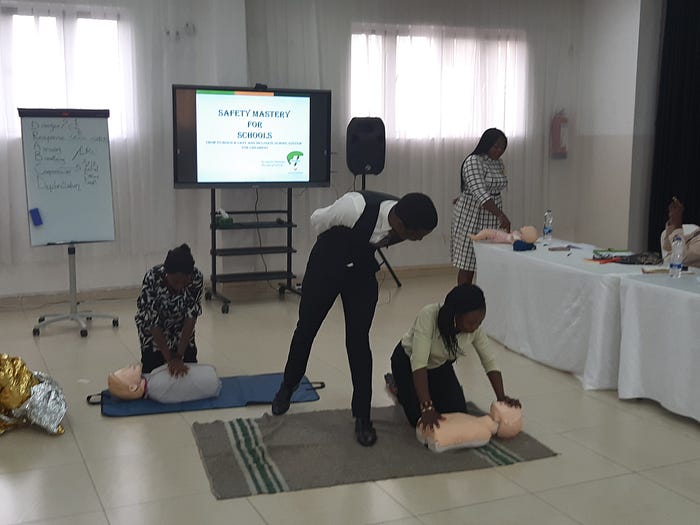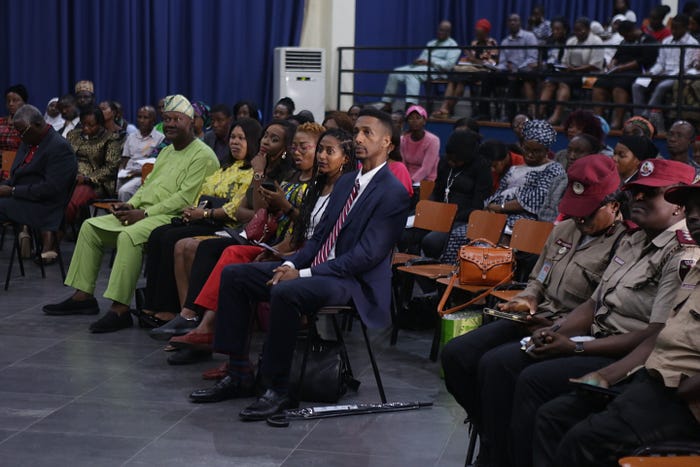My name is Ugochi Obidiegwu also known as “The Safety Chic” on social media because of my work in raising safety consciousness in children and young adults. Every year more than 2 million children under the age of 15 experience accidents in and around the home. We do not have a formal system in our schools to teach children how to safe in different situations ranging from falls, choking, fire, molestation, abduction, poisoning and other related accidents across the continent. Therefore I have decided to create innovative education products and events which will provide the required safety knowledge using interesting methods. I started by visiting schools through my Train Them Young Initiative (#2TYI) and then I self published a child safety story book series on Amazon. There are currently 3 books in The Adventures of Muna story book series and it has sold in 12 states in Nigeria and 9 countries. We are currently adapting the story books to animation to cater to visual learners and reach more children across the continent. Courtesy of the Mandela Washington Fellowship, I am collaborating with a fellow from Guinea, Alpha Diallo to get the story books translated to French so that children in French speaking countries can be carried along too. Every year, we also organise a #MovieDayWithTheSafetyChic for teenagers. Our goal is to keep bringing the safety message to our children using fun methods.
The Mandela Washington Fellowship has helped to increase the reach of my work and that is why I applied for the Reciprocal Exchange to help my peer collaborator and I equip more educators. And we were able to achieve that with the 3 major activities scheduled in our reciprocal exchange.
Every year I organise the annual School Safety Summit as a one day event in Nigeria where stakeholders gather to strategise on safety challenges in the school system and how to manage it. This year courtesy of the Reciprocal Exchange, she was able to organise a more robust programme with her peer collaborator from Phoenix, Kenneth Mims. The theme for this year’s summit was “Safety and Education of the Child with Special Needs” and there were 3 major activities to reach different aspects o the society.
1) The SMS Project
The Safety Mastery for Schools (SMS) project was a dedicated full day training to equip educators with basic knowledge of building a safe and inclusive school system. In line with the theme, they were also taught by other facilitators on how to teach children with autism and cerebral palsy, how to create Individualized Education Plans (IEPs) and how to administer First Aid. Kenneth Mims shared based on his experience with teaching the children in his school for children with autism. Dare Akinfosile handled the first aid practicals, Adelola Edema taught on IEPs while Ugochi Obidiegwu taught them the basic components of building a safety system. The goal is for trainees to be able to train other teachers in their schools.


2) The School Safety Summit
The next day we had the summit which had over 400 participants from across the country. The summit involved a keynote address by Monica Nwosu and a masterclass by AVM Femi Gbadebo on inclusion strategies for schools. There were diverse panel sessions with industry experts speaking on the rights of children with special needs, health management and nutrition, preventing abuse and how to teach children with special needs. The audience got a chance to ask questions and win gifts courtesy of sponsors who donated materials. Feedback from the audience at the event and on social media showed that it was an enlightening event for attendees. We were also able to unveil the third edition in The Adventures of Muna child safety story book series which focused on safety tips and treating children with special needs well. We are grateful for the support of Avi Cenna International Schools, Kids Court School, Cato Foods and Ikeja Electric.


3) Visit to a degree awarding institution
As we planned for the reciprocal exchange, we discovered that there were just 3 degree awarding institutions on Special education in Nigeria. This buttressed the complaints of most teachers that they had no knowledge on how to teach students with special needs because they were not trained in that area. Therefore, we visited the Department of Special Education in the University of Ibadan to meet with the lecturers and students. Our conversation with them showed us the challenges in the education system and we brainstormed on possible solutions and areas of collaboration. We visited the special children unit in the department and donated some of the safety education resources to them and to another primary school on the University premises.


The reciprocal exchange made it possible for us to reach more people, make more impact and discover more areas of collaboration. We will continue to do more to ensure that our schools are safe and inclusive and that our teachers are equipped to do great work




